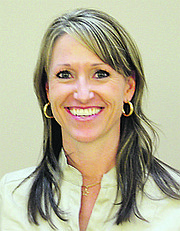Abandoned Sherman motels to be demolished
Green space, public parking are possibilities for property
While the Coeur d’Alene City Council sealed the fates of the abandoned transitional motels Sandman and Star Haven on East Sherman Avenue Tuesday night, the future of the two properties remains up in the air.
The council unanimously voted to demolish the motels, which were acquired by the city in December in a land swap with St. Vincent de Paul. The city’s Community Planning director, Hilary Anderson, came to council at the time with ideas to convert the property into open space, including a pocket park and public parking. Anderson made similar suggestions at Tuesday night’s meeting.
“It was kind of agreed to that the lowest hanging fruit, the lowest cost and the quickest benefit would be to move forward with green space and public parking,” Anderson recalled.
“That’s really (why) I’m here before you this evening, is to move forward with abating the motel sites, doing the demolition this fall, and then in the spring coming back and doing more of the work to create green space and public parking.”
The space, Anderson theorized, could be used for a variety of purposes, including holding farmers markets and food truck expos for the community while still remaining open for future development. The total cost would have been $97,465, which would in part be funded by a Fruitland property sale, with the remaining $27,620 from fund balance. Her recommendation was met with mixed results and many questions from council.
“I agree with the demolition piece of this,” Councilwoman Kiki Miller said. “… I was kind of hoping there would be a plan that said, ‘This is what this park is going to look like. Here is our projected expenses.’”
While the price tag would include electrical work for keeping power an option for future events, Miller also wanted a better view of the organization behind maintaining the open space.
“We’re going to fund balance for it,” she inquired, “but we’re not really sure what it is we’re going to fund balance for. If this is in Parks (and Recreation), are these going to be city parks?”
Anderson defended the recommendation, saying the space not only helps the community now but leaves the possibility of helping the community in the future, not unlike the pocket park in midtown.
“This really provides a benefit immediately by doing these improvements,” Anderson said. “But it also sets us up for if we want to sell the land in the future, do a land exchange, allow someone to assemble properties for development. Yes, as it’s proposed now, it could last like this for a long time. It could be very functional open space and public parking. But it’s also going to be set up in a way that could allow future use.”
Councilman Woody McEvers said investing more into the land right now isn’t necessarily the right move, seeing how the community is navigating uncertain times.
“I think about all these things it can be, and I’m trying to get on board with it,” McEvers said. “I haven’t seen much happen in the midtown park. It’s green, it’s pretty, but it’s not much use … We try things, and they kind of stick. It’s just, this whole ‘Make everything groovy’ sometimes hits me wrong when things are so lean, so mean. We’re trying to make ends meet here, and we’re dipping into fund balance. I know it’s just a little bit, but everybody’s little bit adds up.”
In the end, the council voted unanimously to approve demolition of the sites. The buildings will be destroyed in October and fenced off through the winter. The expense will be pushed to the next fiscal year. The council will re-address the future use of the properties before the spring. Anderson agreed that demolition should be the priority.
“Sitting vacant for two years is not doing any good for the neighborhood or the corridor,” she said, “and is actually going to create more of a risk.”



